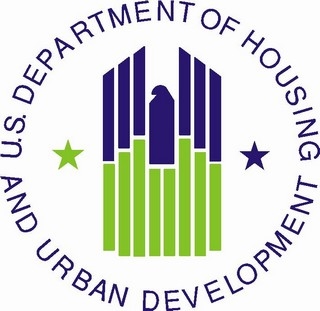Advertisement
HUD Requests $46 Billion-Plus Budget for 2015

U.S. Housing and Urban Development (HUD) Secretary Shaun Donovan has unveiled HUD’s fiscal year 2015 budget proposal. This year The President’s Budget provides a roadmap for accelerating economic growth, expanding opportunity for all Americans, and ensuring fiscal responsibility. The Budget adheres to the 2015 spending levels agreed to in the Bipartisan Budget Act and shows the choices the President would make at those levels. But it also shows how to build on this progress to realize the nation’s full potential with a fully paid for $56 billion Opportunity, Growth, and Security Initiative, split evenly between defense and non-defense priorities.
“This year’s budget presents a unique opportunity for HUD to work within the frame of the Bipartisan Budget agreement while continuing to build ladders of opportunity for all Americans” said Donovan. “This funding will continue to help strengthen and stabilize our nation’s housing market while putting our economy back on the right track and helping those in most need.”
HUD’s budget is an essential component of the President’s vision of investing in the things we need to grow our economy, create jobs, increase skills training and improve education – while continuing long term deficit reduction.
The budget focuses on four key principals:
►Driving Economic Growth by Increasing Access to Credit and Strengthening the Federal Housing Administration;
►Providing Opportunity by Restoring and Increasing Assistance to Vulnerable Families;
►Creating Growth and Opportunity through Key Initiatives; and
►Ensuring Fiscal Responsibility and Increasing Efficiency.
While the President’s request makes critical investments to speed economic growth — growing neighborhoods of opportunity through Choice Neighborhoods and providing access to credit through FHA—it also includes new savings proposals and some very difficult choices we would not have made in a better fiscal environment.
Despite these tough choices, the FY2015 budget:
HUD’s FY2015 Budget Request increases the gross Budget Authority by 2.6% over FY2014 levels, and by 10.1% over FY2013 sequestration levels, to $46.66 billion
Drives Economic Growth by Increasing Access to Credit and Strengthening the FHA
►Estimates that the FHA will end the year with a capital reserve balance of $7.8 billion and will not need a mandatory appropriation from the U.S. Treasury.
►Creates FHA HAWK – Homeowners Armed with Knowledge – to increase access to credit for first-time homebuyers underserved by the current mortgage market and further strengthen the FHA fund.
►Increases Housing Counseling by 33 percent above last year’s level, to $60 million.
Provides Opportunity by Restoring and Increasing Assistance to Needy Families:
►Increases investments in several key programs, including Tenant-Based Rental Assistance, Veterans Affairs Supportive Housing Vouchers (VASH), Choice Neighborhoods
►Funds Homeless Assistance Grants at $301 million above FY2014 levels, to get back on track with Opening Doors: Federal Strategic Plan to Prevent and End Homelessness
Creates Growth and Opportunity through Key Initiatives:
►The FY15 Budget provides $120 million for the Choice Neighborhoods Initiative. Additionally, the Administration’s “Growth, Opportunity and Security Initiative provides $280 million. These funds will support comprehensive revitalization in high-poverty neighborhoods and the Administration’s Promise Zones Initiative;
►The budget eliminates the Rental Assistance Demonstration (RAD) cap of 60,000 units, which will enable HUD to address the more than 180,000 units of applications on hand today, and create approximately $6.0 billion in private financing for the recapitalization of public housing.
Ensures Fiscal Responsibility and Increases Efficiency:
►HUD’s budget continues efforts to transform the way HUD does business and builds on the success of Transformation Initiative (TI) with an up to $80 million TI Fund transfer for:
►Providing Technical Assistance online and through NOFAs, which speeds delivery
►Expanding the Family Self Sufficiency Program, and streamlining for better outcomes
►Providing flexibility for the Operating and Capital Funds
Opportunity, Growth, and Security Initiative
The Opportunity, Growth, and Security Initiative will include concrete, specific proposals to grow our economy and help the middle class and will be fully paid for with a balanced package of spending and tax reforms.
It will demonstrate how, by simply closing a few unfair tax loopholes and reforming spending programs, Congress could achieve significant economic goals in research, education, manufacturing and skills training. It will be evenly split between defense and non-defense ($28 billion for each). This is consistent with the model established in the Bipartisan Budget agreement, providing equal dollar-for-dollar increases above the current law discretionary spending caps for both defense and non-defense. (This level would fully eliminate the remaining non-defense discretionary sequestration cuts in FY2015.)
To list just a couple of HUD-specific examples, the Opportunity, Growth and Security Initiative will include:
►An additional $280 million for the Choice Neighborhoods Program, to fund comprehensive neighborhood revitalization strategies in seven to 10 additional high-poverty neighborhoods;
►An additional $125 million to further expand the Jobs-Plus program to assist a total of 50,000 public housing residents to secure employment and increase their earnings;
►And $75 million for the Integrated Planning and Investment grants program to support 30-40 regional and community planning efforts that coordinate housing, land use, economic and workforce development, transportation, and infrastructure investments.
About the author





